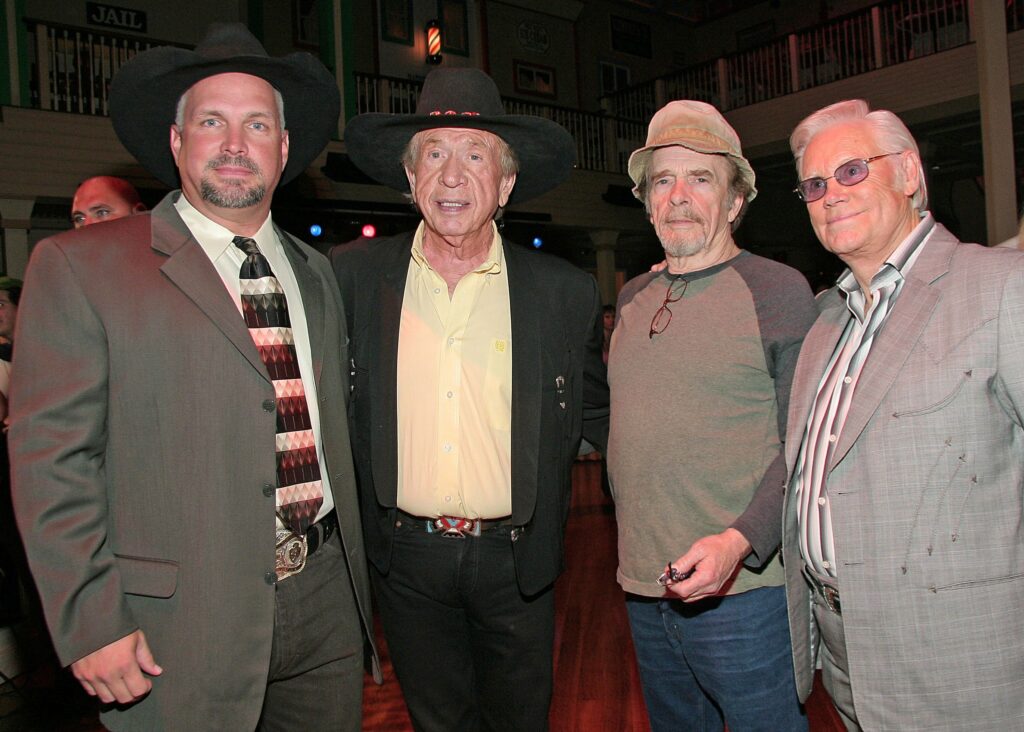
Dreams Deferred, Hopes Reborn: A Ballad of Humble Struggle and Quiet Triumph
When Buck Owens released “Big in Vegas” in 1969, it marked a poignant turn in his storied career—a quiet testament to the perseverance behind the glitz, the aching honesty beneath the rhinestones. Though it did not chart as highly as some of Owens’ more rollicking Bakersfield hits, the song remains one of his most emotionally resonant works. Featured on the album Buck Owens in London “Live”, and later compiled on various retrospectives, “Big in Vegas” stands apart for its narrative intimacy and for revealing a more vulnerable dimension of a man often associated with twangy telecasters and upbeat honky-tonk.
Unlike his signature hits like “Act Naturally” or “Together Again,” which topped Billboard’s country charts, “Big in Vegas” speaks not from the summit but from the long and uncertain climb upward. Co-written by Owens with producer Ken Mansfield and songwriter Terry Stafford—best known for penning Elvis Presley’s “Suspicion”—the track is less about stardom than about yearning: the sacrifices made in pursuit of a dream and the quiet ache of delayed recognition.
Lyrically, “Big in Vegas” functions as both an autobiographical sketch and a universal lament. It opens with unflinching humility: “I was just a kid from Texas / Had no money, had no sense.” These are not grandiose beginnings; they are bare-knuckled realities. The protagonist leaves home with little more than ambition, landing under the relentless neon canopy of Las Vegas—a city that promises fortune but offers none without struggle. He sings in small-time clubs, ignored by crowds chasing louder diversions. And yet, within these lines lies a quiet defiance, an unwavering belief that one day he’ll “be big in Vegas.”
Musically, the arrangement is subdued compared to Owens’ earlier hits. Gone is the galloping shuffle of Bakersfield honky-tonk; instead, we hear a gentle sway built around acoustic guitar, pedal steel, and strings—echoes of Nashville’s smoother production style without surrendering entirely to it. Owens’ vocal performance is restrained but deeply emotive, delivering each line with the weight of lived experience. There’s no theatricality here—only sincerity.
What makes “Big in Vegas” endure is its unvarnished humanity. In a genre often steeped in mythologizing rural virtue or heartbreak clichés, Owens crafts something subtler: a tale of hope tempered by experience, where dreams don’t explode into sudden success but simmer slowly through years of obscurity and tenacity. It’s not about being famous—it’s about surviving long enough to be heard.
In many ways, this song encapsulates what Buck Owens symbolized beyond his commercial triumphs: a voice for those who kept going when no one was listening yet believed their song still mattered. “Big in Vegas” is less a celebration of having arrived than an anthem for those still on the road—quietly carrying dreams under dust-stained hats and behind weathered smiles.
And perhaps that’s why it resonates so deeply today—not just as a country ballad, but as a mirror to anyone who has dared to dream against the odds.